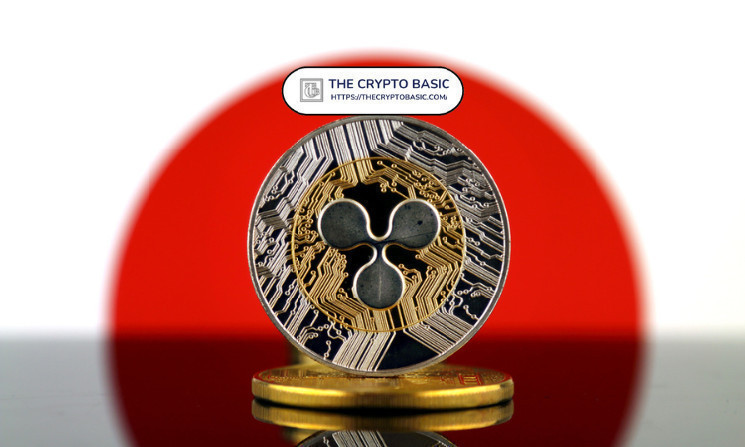A research paper from three industry pundits confirms Ripple has formed partnerships with up to 80% of the banking industry in Japan.
The research, prepared by veteran Statistician Dr. Hossein Hassani alongside research experts Xu Huang and Emmanuel Silva, spotlighted the substantial inroads Ripple has made within Japan’s banking industry.
According to the study, about 80% of banks in Japan have partnered with Ripple, illustrating the increasing importance of blockchain in TradFi. Ripple, known for its robust payment solutions, has established itself as a formidable player in facilitating faster and more efficient cross-border transactions.
⚡️⚡️⚡️80 % of Japanese banking industry have partnered with Ripple ⚡️⚡️⚡️https://t.co/ysTPfsLHau pic.twitter.com/qYK2CQpuQ2
— The ISO GOAT (@XrpKing09531420) June 5, 2024
Ripple Penetrates Japan
Ripple’s attractive offering has captured the attention of leading financial institutions, especially in Japan. The paper confirmed that Japan’s banking sector, traditionally known for its cautious approach to new technologies, has embraced Ripple’s blockchain solutions at an unprecedented rate.
This shift is part of a broader trend within the financial industry towards adopting innovative technologies. The research indicates that over 60 Japanese banks have integrated Ripple’s technology. These collaborations persist despite the legal battle between the U.S. SEC and Ripple, which has led to several American institutions expressing concerns with partnering with Ripple.
Ripple’s technology, including its ODL system (now Ripple Payments) offers several advantages, including reduced transaction costs, faster processing times, and enhanced transparency. These benefits sync with the global banking industry’s goals of improving efficiency and customer service.
Through Ripple partnerships, Japanese banks can offer their clients quicker and more reliable international payment services, setting a new standard in the industry. One major institution that has leveraged this opportunity is SBI Holdings, a Japanese financial behemoth with multiple subsidiaries.
SBI Holdings and Ripple formed a partnership in 2016, which led to the launch of a new venture SBI Ripple Asia. Both firms have extended their collaboration, with SBI subsidiaries relying on Ripple’s Payment infrastructure for transnational settlements. SBI has also
Ripple Looks to Expand Reach
Besides finance, Ripple also partnered with Japanese consulting company HashKey DX this year. Ripple’s partnerships extend beyond Japan. According to the report, in the UK, Santander Bank has implemented Ripple’s xCurrent protocol to facilitate international payments ranging from £10 to £10,000.
Meanwhile, Ripple is further looking to penetrate other areas with recent acquisitions and partnerships. The firm acquired Metaco to jump into the custody and tokenization industries. It has now expressed interest in penetrating the stablecoin market, with plans to launch an XRPL-based stablecoin later this year.
Global Adoption of Blockchain
The study not only focuses on Japan but also illustrates the global trend of blockchain adoption in the banking sector. Major financial institutions worldwide, including BNP Paribas, UBS, and HSBC, are exploring and implementing blockchain solutions to streamline operations.
According to the report, this trend is driven by the technology’s potential to reduce costs and increase the transparency and security of transactions.
For instance, BNP Paribas has piloted blockchain technology for processing of orders and currency funds, while HSBC has executed live trade finance transactions using R3’s Corda blockchain. These initiatives reflect a growing recognition of blockchain’s transformative potential.
 thecryptobasic.com
thecryptobasic.com
